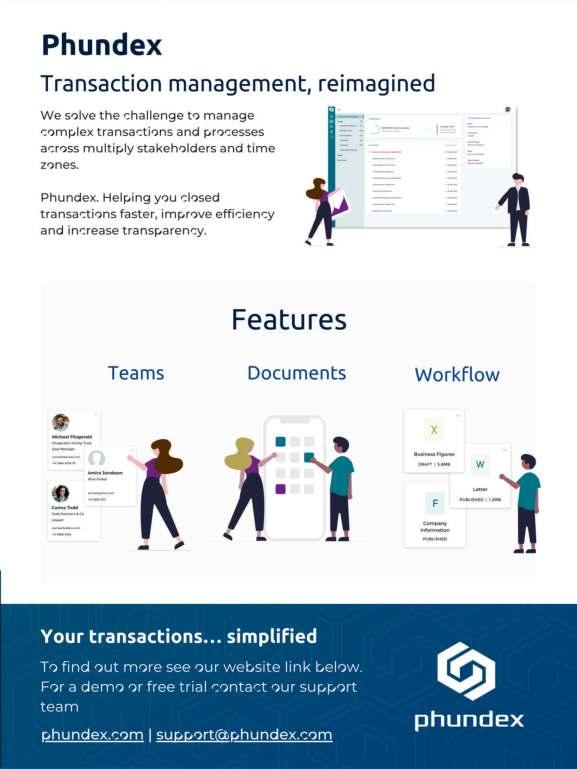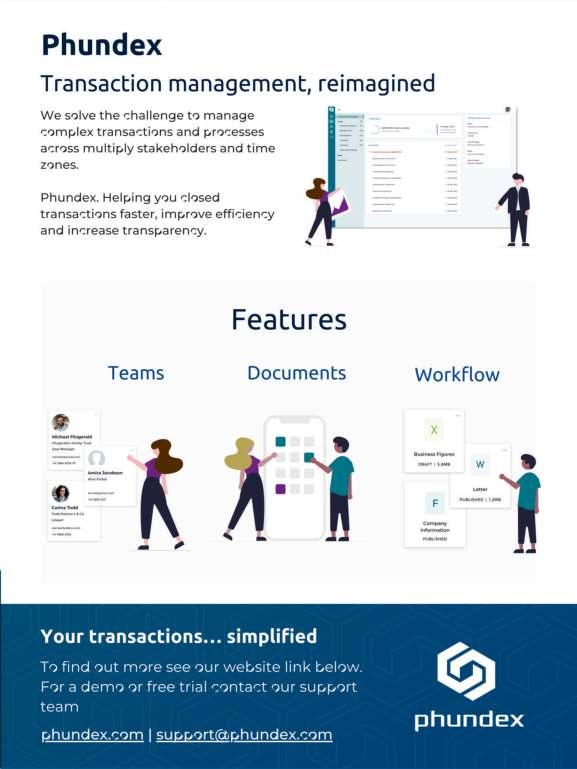








 -Mark Twain
-Mark Twain




For individuals considering franchise ownership as a pathway to entrepreneurship, choosing the right franchise can be a pivotal decision. The year 2023 presents a range of exciting opportunities with several franchise options that show promising growth potential and align with evolving consumer trends.
Opening a franchise offers numerous advantages, including a proven business model, established brand recognition, and ongoing support from the franchisor. However, selecting the right franchise opportunity requires careful consideration of various factors, such as market demand, industry trends, financial viability, and personal interests and strengths.
The digital revolution continues to shape the business landscape, and e-commerce and online services franchises are at the forefront of this transformation. From ecommerce platforms and online marketplaces to digital marketing agencies, these franchises capitalize on the growing online consumer base and the increasing reliance on digital solutions.
The flexibility, scalability, and global reach of online businesses make this sector an attractive option for entrepreneurs with strong digital acumen. Franchising offers a unique and advantageous business model that has attracted aspiring entrepreneurs for decades. It provides a pathway to business ownership with several benefits that set it apart from starting an independent business.
Understanding the advantages of franchising can help individuals make informed decisions and seize the opportunities presented by this popular business strategy.
Franchises often come with well-known and trusted brand names that have built a reputation over time.
This established brand recognition gives franchisees an instant advantage in the market, as consumers are already familiar with the brand, its products, and its services.
The power of an established brand can lead to a faster ramp-up period and increased customer trust and loyalty. Franchisors provide comprehensive support and training to franchisees throughout their business journey. This support includes initial training on the business model, operations, marketing, and management.
Embracing the journey of these establishments, Insights Success sheds light on The Best Franchises to Open in 2023 . Flip through the pages and explore the proven business models through which individuals can embark on a path to business ownership with a higher probability of success and a lower level of risk compared to starting an independent venture.
Have a Delightful Read!










Brief Company Name Featured Person
Epik is the leading global licensing agency putting brands into video games to produce premium digital items and experiences for over one billion gamers worldwide.
Home Helpers® Home Care is an in-home care service that provides top-quality in-home care. Emma Dickson CEO & President Home Helpers® Home Care homehelpershomecare.com
Hospitality Management Holding hmhhotelgroup.com

Aimmune Therapeutics aimmune.com
Jordan Meinster CEO PickUp USA pickupusafitness.com
The Saunders PR thesaunderscompany.com
E. Gayle Saunders Founder and CEOHospitality Management Holding is a fully integrated pioneer hotel management company that provides hotel owners and developers a broad spectrum of world-class management solutions.
PickUp USA Fitness is the first and only basketball-focused fitness club concept operating in the United States and was founded to create a better way for people to play basketball.
The Saunders Company is a full-service public relations firm, specializing in strategic communications planning, diversity, inclusion and equity communications, and many more.
Gary Ma COO Epik epik.gg Emma Dickson / CEO & President / Home Helpers® Home Care
Emma Dickson / CEO & President / Home Helpers® Home Care


When it comes to finding care services for seniors,
individuals with disabilities, or those recovering from illness, injury, or surgery, there are numerous factors to take into account. As a concerned family member, it's only natural to have reservations and worries during this process.
Home Helpers® Home Care specializes in delivering personalized in-home care services to seniors and other individuals requiring ongoing or recuperative care. The organization provides care services ranging from a few hours per week to 24/7 care, supporting clients wherever and whenever they need us to make life more comfortable and help them retain their independence.
At Home Helpers® Home Care, the organization is committed to addressing clients’ care needs. They understand that each family's situation is unique and requires individualized attention. As a result, they offer a range of home care and support services to meet specific needs. Whether it's short-term or long-term care, Home Helpers Home Care works one-on-one with clients and their families to design a personalized care plan that meets their needs.
Home Helpers® Home Care understands that selecting a care service provider can be a daunting task. That’s why they're there every step of the way to help clients make an informed decision. Home Helpers Home Care agencies are locally owned and operated by trained professionals and their teams of exceptional caregivers who are passionate about what they do. They strive to provide high-quality care services that are both compassionate and reliable. Their goal is to ensure that the clients receive the best possible care, providing confidence for families that their loved ones are receiving the very best in world-class care.
Home Helpers® Home Care provides services that support the needs of individuals in their homes, or wherever they call home. The company aims to be the extended family when the family can’t be there, delivering outstanding care to make life easier for their clients and their families.
The organization possesses a strong organizational structure and core processes to operate successfully. This includes assessing clients' current and future needs, hiring, and training exceptional caregivers, and utilizing technology to improve care and efficiency. By providing exceptional care with proven operating systems, franchisees of
Home Helpers® Home Care are able to maintain their market leadership and position as preferred home care providers in the communities they serve.

Emma Dickson 's path to becoming CEO & President of Home Helpers® Home Care was far from straightforward. Initially planning to pursue a career in education, compelling business opportunities led her to business operations leadership roles at both Blockbuster and later at Sylvan Learning Centers.
Through these experiences, Emma honed her ability to build teams and develop programs for revenue growth and exceptional service, further developing her ability to scale organizations that she now applies in leading Home Helpers® Home Care.


During her 15-year tenure as CEO & President, Home Helpers® Home Care continues to experience phenomenal results with over 26 years of continuous system-wide revenue growth, expanding its reach to serve more than 1,500 communities. Emma and her team successfully managed the challenges of the COVID-19 pandemic and the resulting surge in demand for home care services.

,Home Helpers® Home Care is commi�ed to expanding its services to meet the evolving demands of the next genera�on of seniors, as consumer preferences change.
They also focused on developing leadership skills and fostering a cohesive team dedicated to advancing Home Helpers® Home Care’s position in the highly competitive home care industry.


Despite ongoing external challenges, such as the current employment challenges, Emma and her team remain committed to creating an exceptional employee experience and prioritizing the needs of clients, franchisees, and employees.
At the heart of Home Helpers® Home Care is a dedicated team of leaders, staff, and franchisees united in their shared mission to deliver the best possible outcomes for those they serve.
,Home Helpers® Home Care is dedicated to pilo�ng new technologies and services in order to con�nue innova�ng and providing the best possible care for its clients.

Emma is a strong advocate for increasing awareness of the critical role that home care plays in the healthcare continuum. She is dedicated to promoting this message and ensuring that her organization remains at the forefront of the home care industry.
Emma's leadership and advocacy are further demonstrated by her position as Past President of the Board of Directors for the Home Care Association of America, where she represents the interests of franchised, corporate, and independent home care agencies.
Home care has the potential to address many of the healthcare industry's challenges, particularly with respect to cost. According to the National Center for Biotechnology Information (NCBI), as much as 30% of healthcare costs are wasted due to individuals failing to comply with their medication regimens.
At Home Helpers® Home Care, the caregivers work to ensure that clients receive proper nutrition and take their medications as prescribed, helping to minimize unnecessary healthcare expenditures. Additionally, caregivers provide companionship and support, which can have a positive impact on clients' mental health and overall well-being.
Emma and her team recognize that home care is an essential component of the healthcare continuum, and they are committed to advancing its role and impact.
At Home Helpers® Home Care, both the National Support Center staff and franchisees are united by a shared set of core values, encapsulated by the company's "Be Bold" philosophy. BOLD stands for "Bring Your Passion Every Day," "Own Your Results," "Love What You Do," and "Driven by Excellence." By embracing these values, every member of the Home Helpers Home Care team is held accountable for their impact on the business and inspired to create exceptional experiences for our clients, franchises, and each other.
Through the BOLD philosophy, Home Helpers Home Care encourages staff and franchisees to bring their best selves to work every day, with a focus on passion, ownership, and
excellence. Individual contributors are empowered to make a positive impact and drive success for themselves and the company as a whole. Additionally, the love of what they do and commitment to excellence creates a culture of enthusiasm and dedication that benefits franchisees, caregivers, employees, and clients alike.
Overall, the BOLD philosophy is a powerful force for accountability, inspiration, and success within the Home Helpers Home Care organization.
As Emma looks towards the future of home care, she recognizes the vital role that technology will play in this space. Home Helpers® Home Care is dedicated to piloting new technologies and services, and continues to innovate to deliver the best possible care for its clients. Along with personal in-home care, Home Helpers® Home Care now offers clients best-in-class monitoring systems that can detect falls and conduct wellness checks when caregivers are not present.
Home Helpers® Home Care is committed to expanding its services to meet the evolving demands of the next generation of seniors, as consumer preferences change. This is why the company recently launched Cared-4℠, a comprehensive care program that is the most extensive support program in the industry.

Cared-4 provides a premium experience of support services, including personal care, companionship wellness calls, meal and nutrition planning, and technology solutions. This comprehensive program is designed to help keep people living independently wherever they want to live.
One of the key benefits of the Cared-4 program is that it allows clients to start receiving support earlier, through monitoring and wellness calls. These services not only improve peace of mind and mental health, but also provide greater insight for families as their loved ones' needs change.
Emma is particularly proud of the Cared-4 program, which is a testament to Home Helpers® Home Care's commitment to using technology and innovation to improve the lives of seniors and their families.
Demand for healthcare and home care will continue to rise as the demand for healthcare and home care services continues to increase, especially with the aging baby boomer population.
Healthcare giants are building massive ecosystems covering healthcare insurance, medical care, and retail, leading to increased competition for staff between clinical settings and home care. At Home Helpers® Home Care, Emma and her team are building partnerships with vertically integrated healthcare companies and technology providers to gain a competitive edge.



Home Helpers® Home Care has a long-term vision to continue to expand into markets that do not have Home Helpers Home Care as a care option. To achieve this objective, the team aims to augment the company’s services with a strategic approach, foster exceptional teams through intensive training, and optimize efficiency by leveraging advanced technologies.
With these concerted efforts, Home Helpers® Home Care is poised to continue to thrive and meet its growth objectives.

The home care industry presents a remarkable opportunity for entrepreneurs, not only in terms of its potential for growth but also in the fulfillment it brings by making a significant impact in your local community.
For those seeking to embark on a new journey with an organization that has a meaningful mission, Emma encourages aspiring entrepreneurs to explore the rewarding prospects of franchise ownership with Home Helpers® Home Care, enabling seniors and others to maintain their independence.
The vision of Home Helpers® Home Care is to provide services that cater to the needs of individuals in their homes.

















Investing in a franchise can be an exciting and
potentially lucrative business venture. However, one of the critical aspects of franchise ownership is securing adequate funding to start and sustain the business. Franchise funding options and strategies vary depending on factors such as the franchise brand, the investment required, and the financial capabilities of the prospective franchisee.
This article aims to explore various funding options and strategies available to individuals seeking to finance their franchise dreams.
Self-funding, also known as bootstrapping, involves using personal savings, assets, or investments to finance the franchise. This option provides the advantage of complete control over the business without having to rely on external sources of funding. It may require disciplined financial planning, saving, or liquidating assets to accumulate the necessary capital.

Traditional bank loans are a common funding option for franchisees. Franchisees can approach banks or financial institutions to secure loans based on their personal creditworthiness, business plan, and the franchise brand's credibility. It is essential to prepare a comprehensive business plan and financial projections to demonstrate the viability of the franchise business to potential lenders.
The U.S. Small Business Administration offers loan programs specifically designed to assist franchisees. SBA loans typically provide more favorable terms and interest rates compared to traditional bank loans. The SBA guarantees a portion of the loan, reducing the risk for lenders and increasing the chances of approval for franchisees. However, the application process can be lengthy and requires meeting specific eligibility criteria.
Some franchisors offer financing options directly to potential franchisees. These financing programs may include reduced franchise fees, installment plans, or even loans. Franchisors that provide financing options often have a vested interest in the success of their franchisees and may offer more flexible terms tailored to the specific needs of their franchise system.
Franchisees can explore the possibility of securing funding from friends and family members who believe in their entrepreneurial vision. This option may involve personal loans, partnerships, or investments. While this approach can provide easier access to funding, it is essential to establish clear agreements and maintain professionalism to avoid potential conflicts.

Crowdfunding platforms provide an alternative method of raising capital by attracting small investments from a large number of individuals. Franchisees can create compelling campaigns highlighting their franchise concept, business plan, and potential returns to attract interested investors. However, successful crowdfunding campaigns require effective marketing, storytelling, and a unique value proposition to capture the attention and support of potential backers.
In some cases, franchisees may opt to use retirement funds, such as 401(k) accounts or Individual Retirement Accounts (IRAs), to finance their franchise. This strategy, known as a Rollover for Business Startups (ROBS), involves setting up a C-corporation and using retirement funds to purchase shares in the company. ROBS allows access to retirement funds without incurring early withdrawal penalties or tax liabilities, but it involves complex legal and tax considerations.
Franchisees can explore equipment leasing options, especially if the franchise requires specific machinery, technology, or equipment. Leasing allows businesses to conserve upfront capital and spread the costs over time. It also provides the flexibility to upgrade or replace equipment as needed.
Franchisees with high-growth potential or unique concepts may attract interest from angel investors or venture capitalists. These investors provide capital in exchange for equity or a share of the business. Securing funding from angel investors or venture capitalists requires a compelling business plan, a clear growth strategy, and a convincing pitch.
In some regions, there may be government grants or incentive programs available to support small business
development, including franchise ventures. These programs vary by location and industry and may offer financial assistance, training, or tax incentives. Researching and applying for relevant grants or programs can provide additional funding opportunities.
Some franchisors or suppliers offer financing options specifically tailored for franchisees. This may involve extended payment terms, discounts on initial inventory purchases, or deferred royalty payments. Franchisees can explore these arrangements to alleviate initial financial burdens and improve cash flow during the early stages of the business.
Franchisees can seek strategic partnerships or joint ventures with individuals or companies that have complementary skills, resources, or industry expertise. Partnering with established entities can provide access to additional funding sources, shared expenses, and pooled resources, reducing the financial burden on the franchisee.



In today's interconnected world, businesses of all sizes are increasingly considering global expansion as a strategic growth opportunity. Expanding into new markets presents numerous opportunities for increased revenue, customer base diversification, and access to talent pools. However, it also brings along a unique set of challenges and risks that require careful consideration and planning.
This article will explore the opportunities and challenges businesses face when embarking on a global expansion journey.
Opportunities in Global Expansion :
Access to New Markets : Global expansion opens doors to untapped markets with different consumer behaviors, preferences, and purchasing power. By entering these markets, businesses can tap into new customer segments and significantly increase their potential customer base.
Revenue Growth : Expanding globally can lead to substantial revenue growth by capitalizing on new market opportunities. A successful expansion strategy can result in increased sales, higher market share, and enhanced profitability.
Diversification : Expanding into multiple international markets allows businesses to diversify their revenue streams, reducing dependence on a single market or region.
This diversification helps mitigate risks associated with local economic downturns or fluctuations in specific industries.
Access to Talent : Global expansion enables businesses to access a broader talent pool and tap into specialized skills and expertise available in different regions. This can enhance innovation, bring fresh perspectives, and drive competitiveness in the global marketplace.

Challenges in Global Expansion :
Cultural and Language Barriers : Cultural differences and language barriers can pose significant challenges when entering new markets. Businesses must understand local customs, traditions, and consumer behavior to effectively adapt their products, marketing strategies, and customer experiences.
Regulatory and Legal Compliance : Each country has its own set of laws, regulations, and compliance requirements. Navigating these legal complexities, obtaining necessary permits, licenses, and understanding local business practices can be a daunting task for companies expanding globally.
Operational and Logistical Complexities : Expanding into new markets often requires setting up physical operations, establishing supply chains, and managing logistics.

Companies must assess the infrastructure, transportation networks, and distribution channels to ensure smooth operations and efficient delivery of products or services.
Competition and Market Saturation : Global expansion means entering markets where competitors may already have an established presence. Businesses need to conduct thorough market research and competitive analysis to identify unique value propositions, differentiate themselves, and gain a competitive edge.

Financial Considerations : Global expansion requires significant financial resources. Businesses must evaluate the costs involved in market research, market entry strategies, local staffing, infrastructure, marketing, and ongoing operations. Managing foreign currency exchange rates and navigating financial risks add further complexity to the financial aspect of global expansion.
Opportunities :
Technology and Infrastructure : Expanding into certain regions can provide access to advanced technology infrastructure, such as high-speed internet, advanced telecommunications, and digital platforms. This can enable businesses to leverage digital tools and platforms for marketing, sales, and operations, leading to increased efficiency and scalability.
Strategic Partnerships : Global expansion offers opportunities to establish strategic partnerships with local businesses, suppliers, distributors, or manufacturers. These partnerships can provide valuable market insights, access to distribution networks, and help navigate local regulations and cultural nuances.
Brand Recognition and Reputation : Expanding globally can enhance a company's brand recognition and reputation on a global scale. A successful global expansion can position the business as a trusted and reputable brand, attracting customers and partners across various markets.
Challenges :
Intellectual Property Protection : Protecting intellectual property rights can be challenging in some countries with different legal frameworks and enforcement mechanisms.
Companies must navigate the complexities of international intellectual property laws to safeguard their patents, trademarks, copyrights, and trade secrets.
Human Resources and Talent Management : Managing a diverse global workforce can be complex. Businesses must adapt their HR practices to comply with local labor laws and cultural norms and effectively manage cross-cultural communication, employee benefits, and performance evaluations.
Political and Economic Instability : Global expansion involves operating in different political and economic landscapes. Businesses need to assess the stability of the target markets, including factors such as political unrest, regulatory changes, economic volatility, and currency fluctuations that could impact business operations.
Supply Chain and Logistics : Establishing and managing an efficient global supply chain can be challenging. Factors such as customs regulations, transportation costs, import/export restrictions, and logistical complexities must be carefully evaluated to ensure a smooth flow of goods or services.
Local Competition and Adaptability : Each market has its own unique competitive landscape. Businesses need to conduct thorough market research to understand local competitors, consumer preferences, and adapt their products, pricing, and marketing strategies to meet the specific needs and preferences of the target market.










